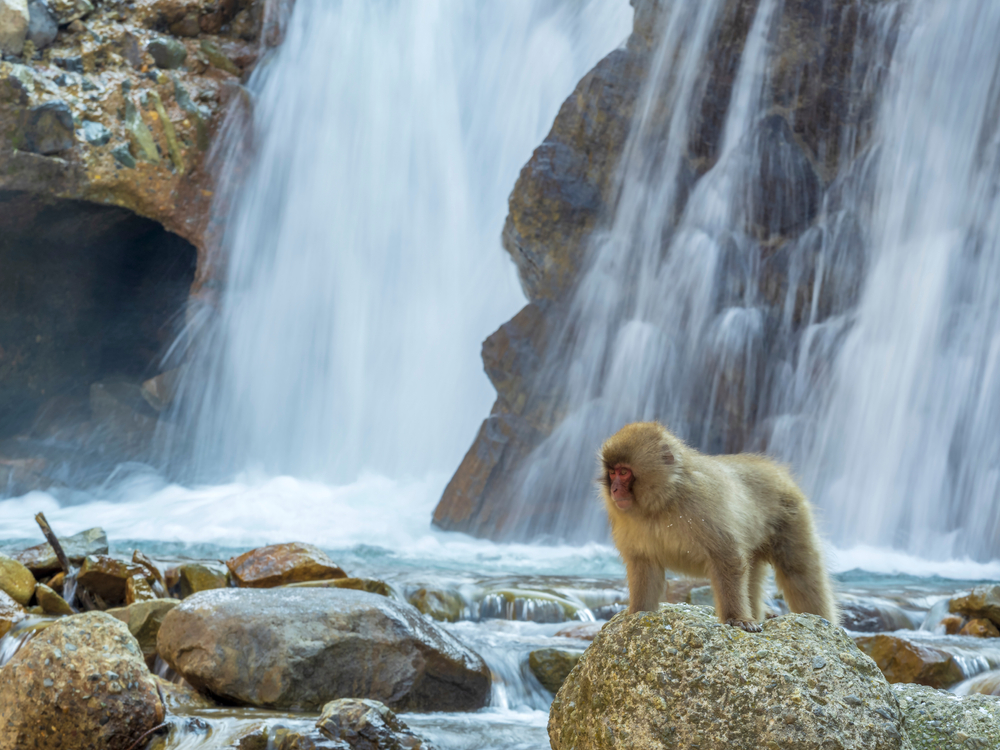
Humans offer a diverse wealth of perspectives, creativity, and experiences. That’s not surprising, given that over 108 billion people have ever lived on this planet. Spirituality can both unify and divide, depending on one’s beliefs and how they’re expressed. Our spiritual landscape is unique, but are we the only species capable of religion? Do animals have religion? Some evidence suggests that other animals practice rituals and may believe that there are higher powers.
Waterfalls, Trees, and Chimpanzees: Do Animals Have Religion
Humans are primates. We’re part of the great ape species family that also includes gorillas, orangutans, bonobos, and chimpanzees. That means we share common ancestry with chimps–so it’s no surprise that our distant cousins may have a form of proto-religion. At least that’s what some scholars have proposed.
Anthropology professor Barbara J. King describes chimpanzee ritual behavior in a March 2016 piece for The Atlantic. Primatologist Jane Goodall observed one group swaying rhythmically before a waterfall. Next, the chimps pitched rocks into the tumbling current. After throwing the rocks, the group sat quietly to gaze at its natural wonder. Scientists have seen other chimps throwing stones at trees in West African forests. This behavior drew comparisons with humans stacking stones in cairns.
Elephants, Memory, and the Dead
Elephants are fascinating beings. They’re famous for their incredible memories, but they’re also one of the few animals that can pass the mirror test. This may prove that elephants have a sense of self-awareness. But what’s even more interesting is how they regard their dead. In a Science Focus piece, Helen Pilcher mentions that they visit the bodies of their community’s deceased. During these visits, the creatures stop to smell and touch the remains.
There have been other claims that elephants wave branches at the waxing moon, but those aren’t yet proven. But their ritualistic behavior toward their dead is still notable. One observer was fortunate enough to capture these rituals on video. National Geographic shows footage in which a group of elephants mourned a matriarch who’d died of natural causes. They circled the bones, inspecting and lingering by them for several minutes.
Process Theology: Rethinking Do Animals Have Religion
Do the chimps’ and elephants’ actions point to religious belief? Answering that question may require careful consideration of how to even define religion. Oxford professor Donovan Schaefer argues that religion can’t be strictly contained within language. Even if animals don’t have specific concepts of God, he argues, they may be drawn to “things of power in the world” in religious ways.
Broadening the definition of religion may lie in process theology. Open Horizons explains that process theology sees God as part of our natural universe. Everything is part of God, yet this Supreme Being is still greater than the sum of the universe’s parts. This core idea is shared by pantheistic faiths such as Sikhism.
Process theology also suggests that living things seek a richness of feeling and experience. Within humans and other creatures, this may lead to feelings of awe and wonder. Such awe is what Goodall’s group of chimps displayed before their waterfall. With the forest chimps, tossing stones may be their way of honoring specific trees. And elephants act in reverent ways toward their dead. These actions suggest that animal motivation and behavior are more complex than we think.
Defining and Understanding Faith
In her 1993 novel Parable of the Sower, American author Octavia Butler described God as change. “All that you touch You Change. All that you Change Changes you. The only lasting truth Is Change. God Is Change.” Butler’s quote reveals some key wisdom about our reality. Nothing remains static–not even how other species conceive of themselves and their world. Both the chimps’ and elephants’ behaviors point to the possibility that non-humans revere something beyond themselves. If that’s the case, this could reveal even more startling truths about life on planet Earth.

